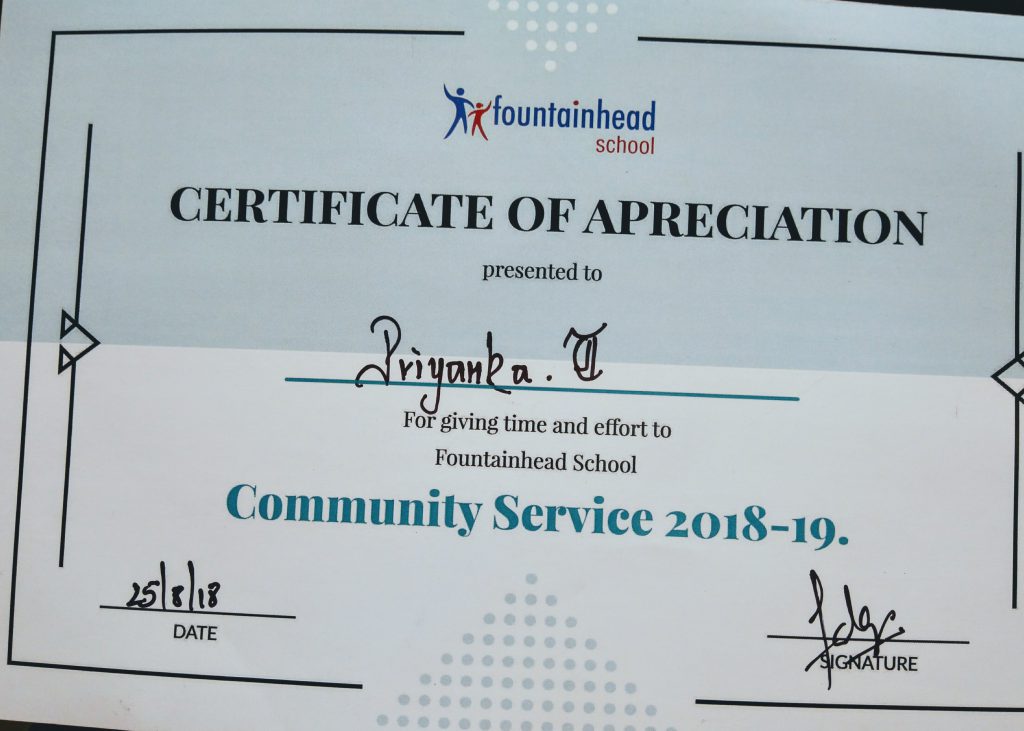Young children from government schools attended service sessions held at Fountainhead School where in they learnt an art form/skill/sport they were passionate about. I volunteered for this 6 week long programme where in I taught young children how to cook. I have always been passionate about cooking new food items and service sessions at school gave me an opportunity to channelise my energy in a direction which would help other people learn something new. My aim was to create a healthy learning environment where young children enjoyed as well as learned something meaningful.
I strongly believe attending service sessions at school changed my perspective on a lot of things. I learnt a lot about gratitude and the true joy of service. Initially, I was not very willing to immerse myself into the 6 week long programme however, I decided to move out of my comfort zone and teach young children how to cook.
The learning outcome that I was successfully was able to achieve were-
LO 2- Demonstrate that challenges have been undertaken, developing new skills: I primarily achieved this through trying to effectively interacting with the children. One of the major challenges I faced during the service sessions was language barrier and that the children not openly communicating with me. However, this did not mean that they were not enthusiastic about learning (for instance) basic steps of chopping different vegetables or making flat bread. After they were comfortable interacting with me, I learnt how fortunate they felt to learn new cooking skills. This made me realise the opportunities and resources I take for granted.
LO 3- Initiate and plan a CAS experience: The students who were volunteering were given a chance to choose what they wanted to teach. After choosing our preferred activity, we were instructed to plan everything. From the ice- breaking activity to segregating children into groups and deciding which food dishes to teach, everything had to planned and managed by the student volunteers. Before the first session, we hadn’t planned well. This resulted into confusion and commotion. For the rest of the sessions, we (student volunteers) ensured that we had a proper agenda so that the sessions ran smoothly. Through this, I learnt the importance of a well-thought out plan.
LO 4- Demonstrate the skills and recognize the benefits of working collaboratively: I was working with a group of four volunteers who had different skills and energy levels. Regardless of our difference in opinion, we were able to work collaboratively, appreciate each other’s inputs and form deeper emotional connections.
LO 5- Demonstrate skills and benefits of working collaboratively: Working with a team helped me to a great extent. I was surrounded by people who would uplift me to do better. Not only did I form meaningful relationships, I felt inspired and motivated by how determined and focused other volunteers were regarding the service that they were providing.
Overall, I realised how privileged I am to be able to have access to education, learning and opportunities.
